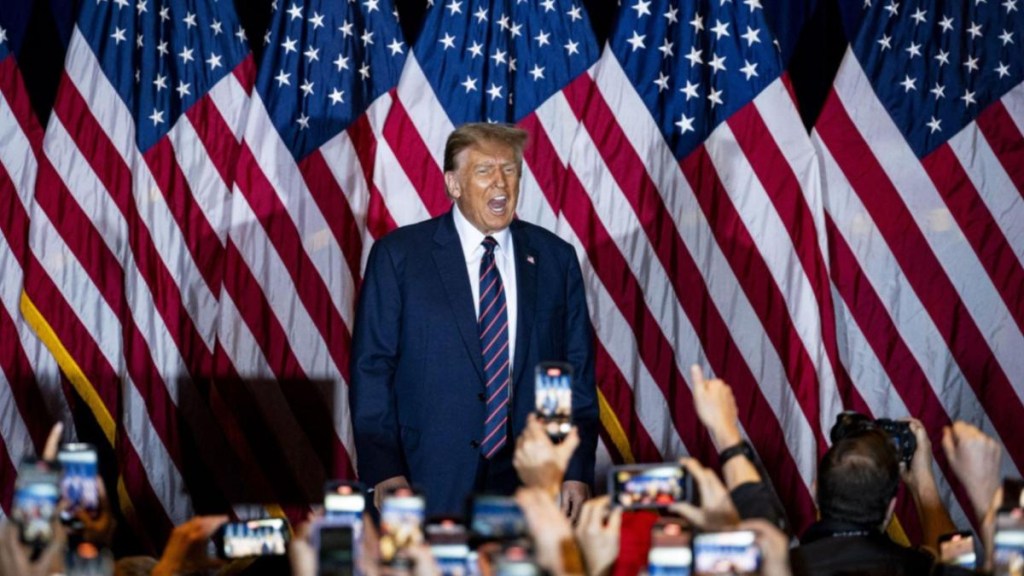In a commanding display of support, former President Donald Trump clinched victory in the Republican presidential contest in New Hampshire on Tuesday, solidifying his position as the frontrunner for the party’s nomination. With 57% of the expected vote tallied, Trump held a comfortable lead of 54.4% to 43.6%, leaving his only remaining rival, former UN Ambassador Nikki Haley, facing an uphill battle. The back-to-back wins put Trump on track to deliver a knockout blow to Haley next month in her home state of South Carolina and turn his attention to an all-but-certain rematch with President Joe Biden.
Addressing supporters at a post-election party in Concord, Haley remained defiant, declaring, “This race is far from over”, and challenging Trump to a debate. “I’m a fighter. And I’m scrappy. And now we’re the last one standing next to Donald Trump,” she asserted. However, Trump, at his own party in Nashua, mocked Haley as an “imposter” and dismissed her claims of victory. His criticism extended to social media, where he labeled Haley as “DELUSIONAL” on his Truth Social app.
First Republican to sweep New Hampshire, Iowa since 1976
The victory in New Hampshire follows Trump’s previous triumph in Iowa, marking the first time a Republican has swept both states since 1976. The outcome is expected to strengthen calls within the Republican Party for Haley to withdraw from the race and unite behind Trump. Despite these pressures, Haley’s campaign remains resolute, vowing to press forward until the pivotal “Super Tuesday” on March 5, when 15 states and one territory hold their primaries.
The next competitive contest is set for February 24 in South Carolina, where Haley has strong ties, having served two terms as governor. Despite her connections to the state, Trump has garnered significant endorsements and holds a substantial lead in opinion polls.
Solid position or ‘not fit’?
The New Hampshire vote marked the first one-on-one matchup between Trump and Haley after Florida Governor Ron DeSantis, once seen as a formidable challenger, dropped out and endorsed Trump. While DeSantis had limited support in New Hampshire, his voters were more likely to shift allegiance to Trump, further solidifying Trump’s position.
Exit polls from the Republican primary highlighted potential vulnerabilities for Trump in a general election. Ninety-one criminal charges against him, including attempts to overturn the 2020 election and retaining classified documents post-presidency, raised concerns among 42% of Republican voters, who said he would not be fit to serve if convicted.
On the Democratic front, President Joe Biden, not appearing on the ballot in New Hampshire, still secured a significant lead with 29% of the estimated vote counted. Biden’s supporters were able to write his name on the ballot, emphasizing his political strength. In a statement, Biden acknowledged Trump’s likely nomination, emphasizing the high stakes for the country and urging voters to consider the impact on democracy, personal freedoms, and the economy.
Despite Trump’s win, exit polls revealed challenges for Biden, with 75% of Republican primary voters expressing dissatisfaction with the economy, an area where Biden has struggled to highlight his administration’s achievements. New Hampshire’s primary results, while predominantly white and with a small population like Iowa, carry weight as a more moderate Republican electorate with a better track record of predicting eventual nominees.
(With inputs from Reuters)

